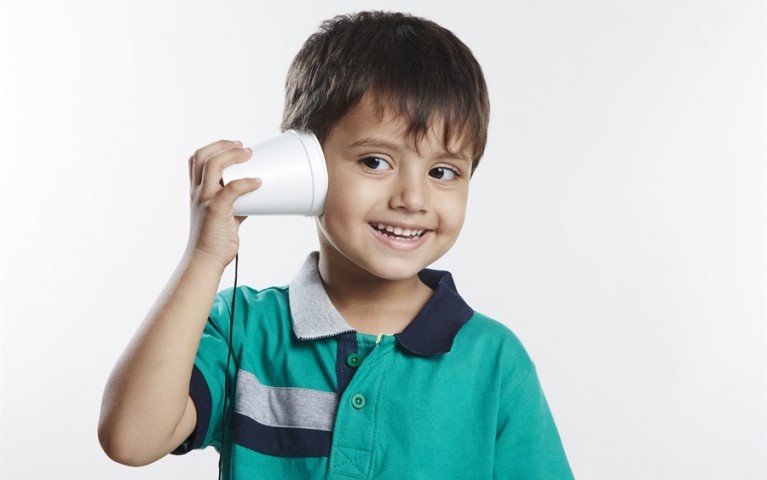
Photo: Imagesbazaar
Many of us think that we are good communicators because we speak well, but that’s only half the story. Effective communication involves listening and understanding, as well as speaking, and now scientists think they’ve found a way to help with that. They found that children who are continually exposed to more than one language are likely to become better communicators.
The researchers found that children who grow up in multilingual environments can interpret a speaker’s meaning better than those only exposed to their native tongue. These children aren’t necessarily bilingual themselves. The mere presence of a second language can help them improve communication skills.
The study involved experiments asking children between the ages of four and six to play a game with an adult. The child and adult sat on opposite sides of a table and the game involved the adult telling the child to move objects on a board. However, the adult was not able to see all the objects, so the instructions could be ambiguous. Therefore the child had to guess which was the correct object to move.
There were three groups of children in the experiment. The first group consisted of monolinguals, those who heard and spoke only English with little experience with other languages. The second group were labeled exposures, and they primarily heard and spoke English, but also had some regular exposure to speakers of another language. And the third were labeled bilinguals, who were exposed to two languages on a regular basis and were able to speak and understand both languages.
The researchers found that monolingual children were not very good at understanding the adult’s instruction and moved the correct object only about 50% of the time. In the other cases, the children in the exposure group selected the correct object 76% of the time, and the bilingual group selected correctly 77% of the time.
This lead the researchers to conclude that being exposed to more than a single language also exposes you to more social experiences, which helps develop better communication skills. In India, where so many languages are spoken, exposure to a second language should be easy.
Katherine Kinzler, associate professor of psychology at the University of Chicago and an expert on language and social development, said, “Children in multilingual environments have extensive social practice in monitoring who speaks what to whom, and observing the social patterns and allegiances that are formed based on language usage. These early socio-linguistic experiences could hone children’s skills at taking other people’s perspectives and provide them tools for effective communication.”
“Children are really good at acquiring language. They master the vocabulary and the syntax of the language, but they need more tools to be effective communicators. A lot of communication is about perspective taking, which is what our study measures,” said study co-author Boaz Keysar, a professor of psychology at the University of Chicago and an internationally known expert on communication and cognition.
The research was published in Psychological Science.
Tell us what you think, we’re listening! Please like FamiLife’s page on Facebook so that you get all our articles and others may find us.
